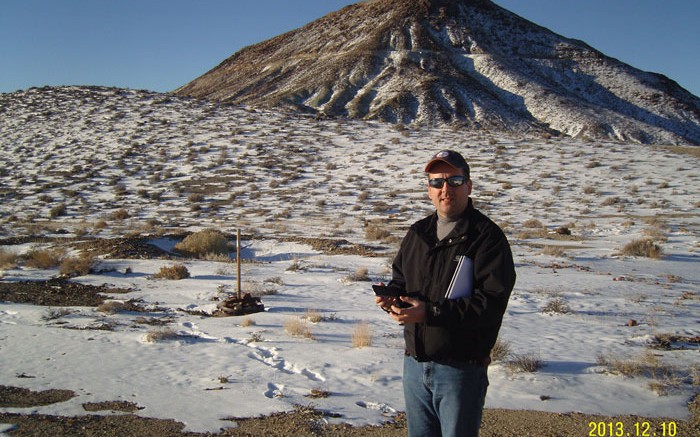Allied Nevada Gold (TSX: ANV; NYSE-MKT: ANV), like many gold producers, has been taking steps to strengthen its balance sheet and recently announced the sale of a non-core asset in Nevada.
In late January, the Reno, Nev.-based firm said it agreed to sell its Hasbrouck property to Vancouver-based West Kirkland Mining (TSXV:WKM; US-OTC: WKLDF) for US$30 million.
The property, located in Esmeralda County, contains two oxidized, low-sulphidation, epithermal vein deposits: Hasbrouck and Three Hills. Hasbrouck contains 1.6 million inferred equivalent oz. gold, while the nearby Three Hills deposit contains 133,600 indicated oz. gold.
A preliminary economic assessment, conducted in 2012, envisions mining the property as an open-pit, heap-leach operation.
In exchange for a 75% interest in Hasbrouck, West Kirkland is required to pay US$20 million when the deal closes, which should occur no later than April 24. It can acquire the remaining 25% by providing another US$10 million within 30 months of closing.
If the junior explorer fails to make the final payment or if Allied Nevada chooses to retain a 25% interest, the miner will place the property into a joint venture, where West Kirkland will hold a 75% stake.
To help fund the transaction, West Kirkland recently completed a non-brokered private placement where it sold 11.9 million shares priced at 10¢ apiece to raise $1.2 million in funds, of which it allocated US$500,000 for the non-refundable deposit it paid Allied Nevada upon entering the sales agreement.
Commenting on the transaction, BMO analyst Brian Quast, who covers Allied Nevada, says the sale price is below his 10% net present value of US$91 million for the property. That said, he notes “shoring up the balance sheet should take priority in this [low gold-price] environment.” Quast cautions that completing the transaction depends on West Kirkland securing more funds, noting the smaller firm generates no income.
In a move to increase its liquidity, Allied Nevada revised its credit agreement in December with the Bank of Nova Scotia and other lenders. Of note, the bank agreed to remove “certain covenants that had become obstacles with the declining price of gold,” said Stephen Jones, the company’s chief financial officer, in a release.
As a result, the bank reduced Allied Nevada’s US$120-million credit facility to US$40 million, however, added an “accordion feature” that could increase that amount to US$75 million.
Quast says that “while this amended revolver gives Allied Nevada some cash cushion in 2014,” he argues the miner still does not have enough funds to expand its Hycroft heap-leach gold–silver mine near Winnemucca, Nev.
The firm plans to expand its single producing mine by constructing a mill to process the harder sulphide material. It is working on a prefeasibility study for the expansion, and aims to start construction later this year.
Allied Nevada says it will lower its mining rate in 2014, but process higher-grade ore that was previously assigned to the mill. “Guidance for the mined grades in 2014 is 0.48 gram gold per tonne and 12 grams silver per tonne, which is double the [0.24 gram gold and 6.9 grams silver] heap-leach reserve grades reported in the last statement,” Quast writes.
The company is targeting 2014 sales of 230,000 to 250,000 oz. gold and 1.7 million to 2 million oz. silver at expected by-product cash costs of US$825 to $850 per oz. In comparison, it sold 181,941 oz. gold and 858,073 oz. silver last year, with the silver sales falling slightly below its expectations.
Allied Nevada will release its full 2013 financials on Feb. 24.
It gained 4% to close at $5.68 on Feb 11, within a 52-week range of $3.20 to $23.84.
Quast rates the stock as an “underperform speculative,” and has no target price.


Be the first to comment on "Allied Nevada sells Hasbrouck to West Kirkland"